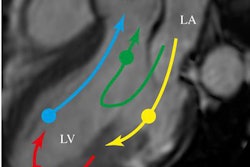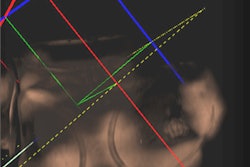Musicians who play wind instruments: Beware of "bagpipe lung," noted the authors of a case report published in Thorax (22 August 2016).
The warning comes after a man died of the chronic inflammatory lung condition hypersensitivity pneumonitis, which is thought to have been caused by regularly breathing in mold and fungi lurking inside the moist interior of a set of bagpipes, according to the authors.
The 61-year-old man had a dry cough and progressive breathlessness, despite treatment with immunosuppressant drugs, for seven years. His condition worsened to the point that he couldn't walk more than 20 meters and was finding it hard to breathe, prompting admission to the hospital, they explained.
The doctors diagnosed him with hypersensitivity pneumonitis in 2009, although the cause had not been identified. He was not a pigeon fancier, which is the usual culprit associated with the condition; his house did not harbor mold or show signs of water damage; and he never smoked.
However, he played the bagpipes daily as a hobby and didn't take them with him on a three-month trip to Australia in 2011, during which time his symptoms rapidly improved. This prompted samples to be taken for testing from several areas inside the bagpipes, including the bag, neck, and chanter reed protector.
The samples grew various different fungi, including Paecilomyces variotii, Fusarium oxysporum, Penicillium species, Rhodotorula mucilaginosa, Trichosporon mucoides, and Exophiala dermatitidis, according to the authors.
Despite treatment, the man died, and a postmortem exam revealed extensive lung damage consistent with acute respiratory distress syndrome and tissue fibrosis.
This is an isolated case, and the cause of the man's condition was not definitively proved, but there have been other reported cases of hypersensitivity pneumonitis in trombone and saxophone players, the authors noted.
"This is the first case report identifying fungal exposure, from a bagpipe player, as a potential trigger for the development of [hypersensitivity pneumonitis]," they wrote. "The clinical history of daily bagpipe playing, coupled with marked symptomatic improvement when this exposure was removed, and the identification of multiple potential precipitating antigens isolated from the bagpipes, make this the likely cause."
Any type of wind instrument could be contaminated with yeasts and molds, making players susceptible to the risk of hypersensitivity pneumonitis, they added.
Although no guidance on the optimal hygiene regimen exists, cleaning instruments immediately after use and allowing them to drip dry could theoretically curb the risk of microbe growth, the authors wrote. Also, both doctors and musicians need to be aware of this potential hazard and the importance of good instrument hygiene, they concluded.



















